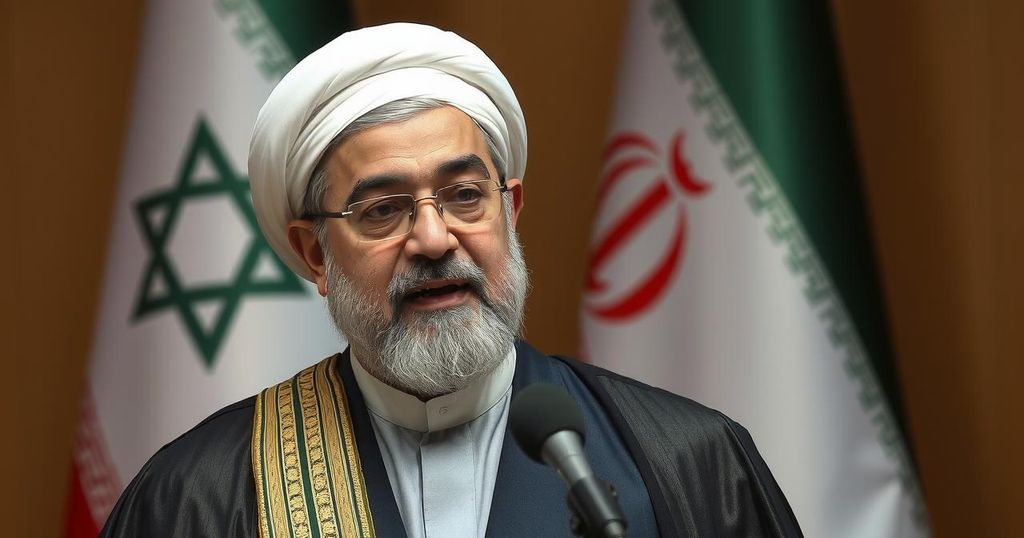Iranian President Masoud Pezeshkian called for Israel to withdraw from Syrian territory during a meeting with Iraqi Prime Minister Mohammed Shia al-Sudani. The discussion focused on foreign military influence in Syria and the importance of respecting local sentiments regarding holy sites. Supreme Leader Khamenei voiced opposition to U.S. troops in Iraq, emphasizing sovereignty. This meeting reflects continuing regional tensions and the impact of Assad’s regime’s fall.
On Wednesday, Iranian President Masoud Pezeshkian urged for Israel’s withdrawal from Syrian territory during a meeting with Iraqi Prime Minister Mohammed Shia al-Sudani. This call for action was made in light of changes following the ousting of Syrian President Bashar al-Assad. Pezeshkian emphasized the necessity of respecting religious sentiments in Syria, particularly concerning Shia holy sites, and expressed concerns over Israeli occupation during the joint briefing with Sudani.
President Pezeshkian highlighted the importance of addressing the Israeli occupation of territories, remarking on the consequences stemming from the Assad regime’s fall and the increase in Israeli military activity in Syria. Israel has been conducting numerous air strikes on Syrian positions, citing preventive measures against dangerous arms falling into enemy hands. The meeting also touched upon Iraq’s viewpoint concerning Syria’s political landscape, supporting its sovereignty and the choices of its populace without foreign interference.
In a broader context, Iranian Supreme Leader Ayatollah Ali Khamenei, who also met with Sudani, warned against the influence of foreign powers in Syria and reiterated a stance against U.S. military presence in Iraq, characterizing it as an occupation. This reflects Iran’s ongoing contention regarding Israeli and foreign military operations in the region, emphasizing the need for stability based on local consent and governance.
The ongoing conflict in Syria has exacerbated regional tensions, particularly following the displacement of President Bashar al-Assad. With Assad’s regime weakened, Israel has intensified air operations aimed at thwarting any strategic threats it perceives in Syria. The geopolitical landscape has prompted countries such as Iran and Iraq to advocate for non-interference in Syria’s sovereignty and respect for its territorial integrity. The historical occupation of the Golan Heights by Israel adds another layer to these complex dynamics.
The call for Israel’s withdrawal from Syrian territory by Iranian President Masoud Pezeshkian underscores the rising tensions in the Middle East as regional dynamics shift. The emphasis on respecting the will of the Syrian people, as stated by Iraqi Prime Minister Sudani, aligns with Iran’s condemnation of external military presence, including American forces. Both nations appear committed to addressing the challenges presented by foreign occupations in the region and advocating for a peaceful resolution that honors local governance.
Original Source: www.newarab.com






